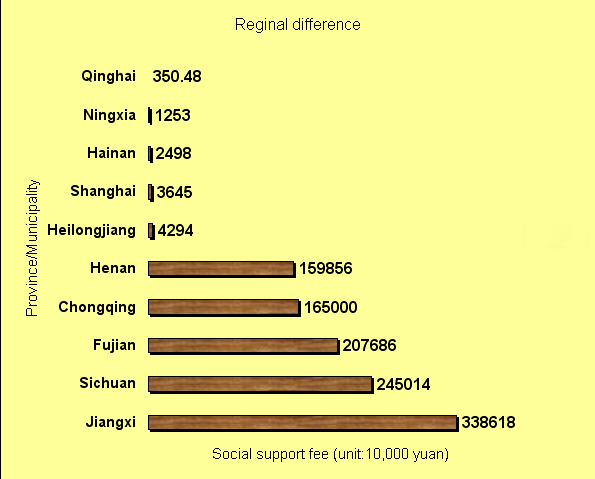


The stark regional gap in the amount of social support fees collected in different provinces and municipalities has sparked intense discussions over regulation of the fees.
Chinese families with more than the allowed number of children have to pay the fee, in order to compensate for the government's spending on public services and the use of natural resources.
Jiangxi topped all 19 provinces and municipalities, which published reports on the fees in 2012, by more than 3.3 billion yuan ($540 million), while Qinghai only got about 3.5 million yuan ($570,000), Beijing News reported.
Wu Youshui, a lawyer from Zhejiang province, questioned the credibility of the statistics.
Wu submitted applications to the family planning commissions and treasury bureaus of 31 provincial-level political authorities in July, requesting the reports of how the money was levied and spent in 2012.
However, there are also views that defend the authenticity of the numbers. Lu Jiehua, a demographics professor at Peking University, said the different amounts can be justified with regional differences on demographic structures and policies.
Qinghai, a plateau-dominated area, offers more preferential birth policies to boost its labor pool, while many people in Jiangxi, an already densely populated province without the same tolerance for a second child, are still willing to take the risk given the labor-intensive economic structure.